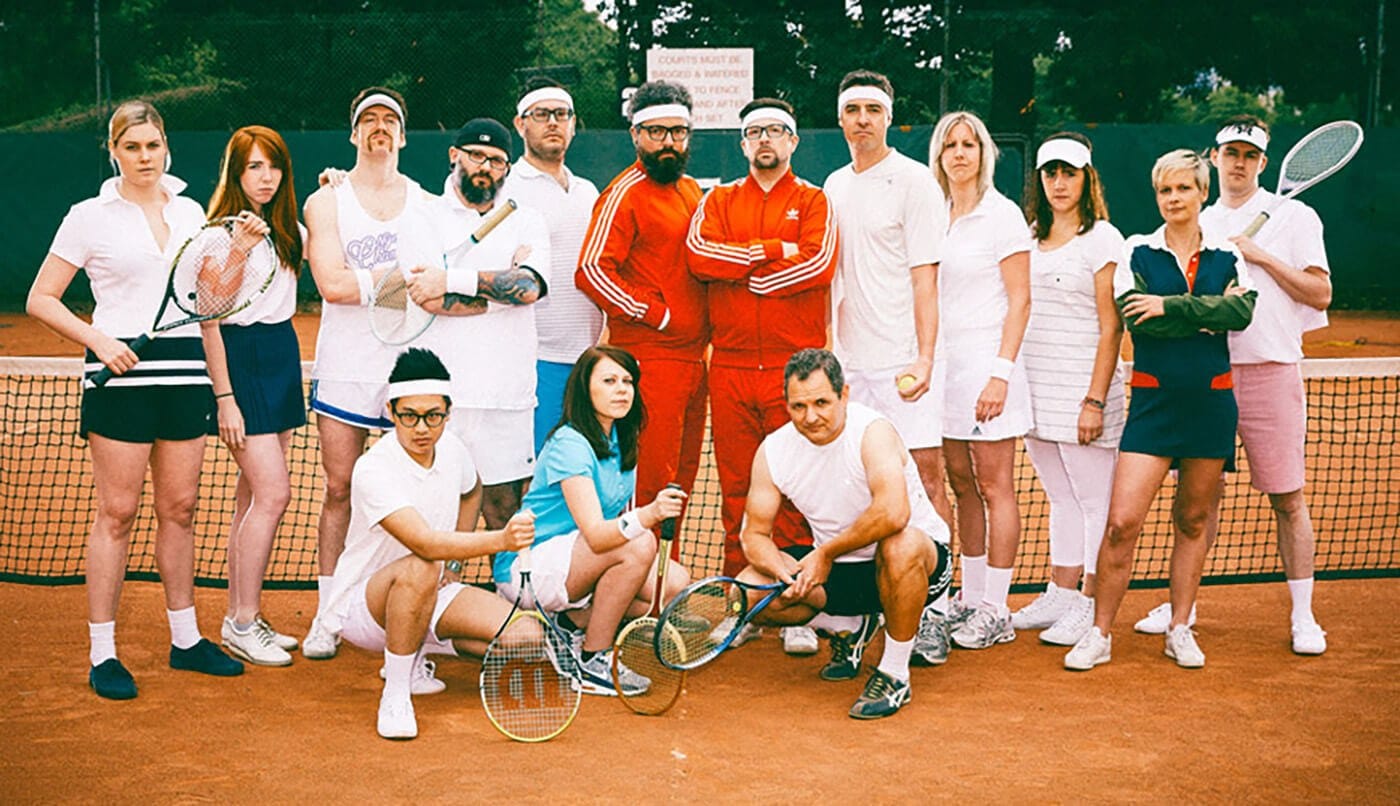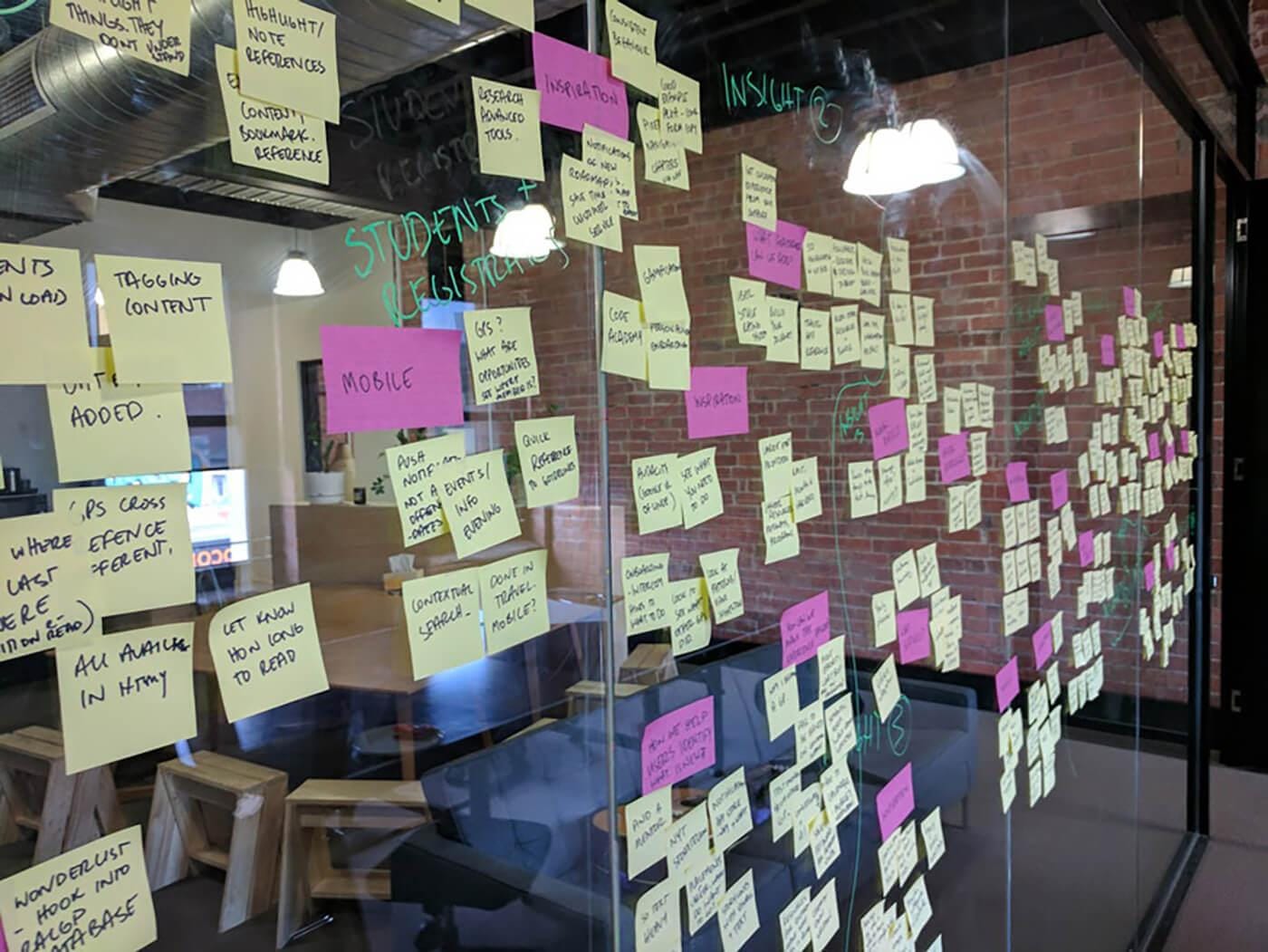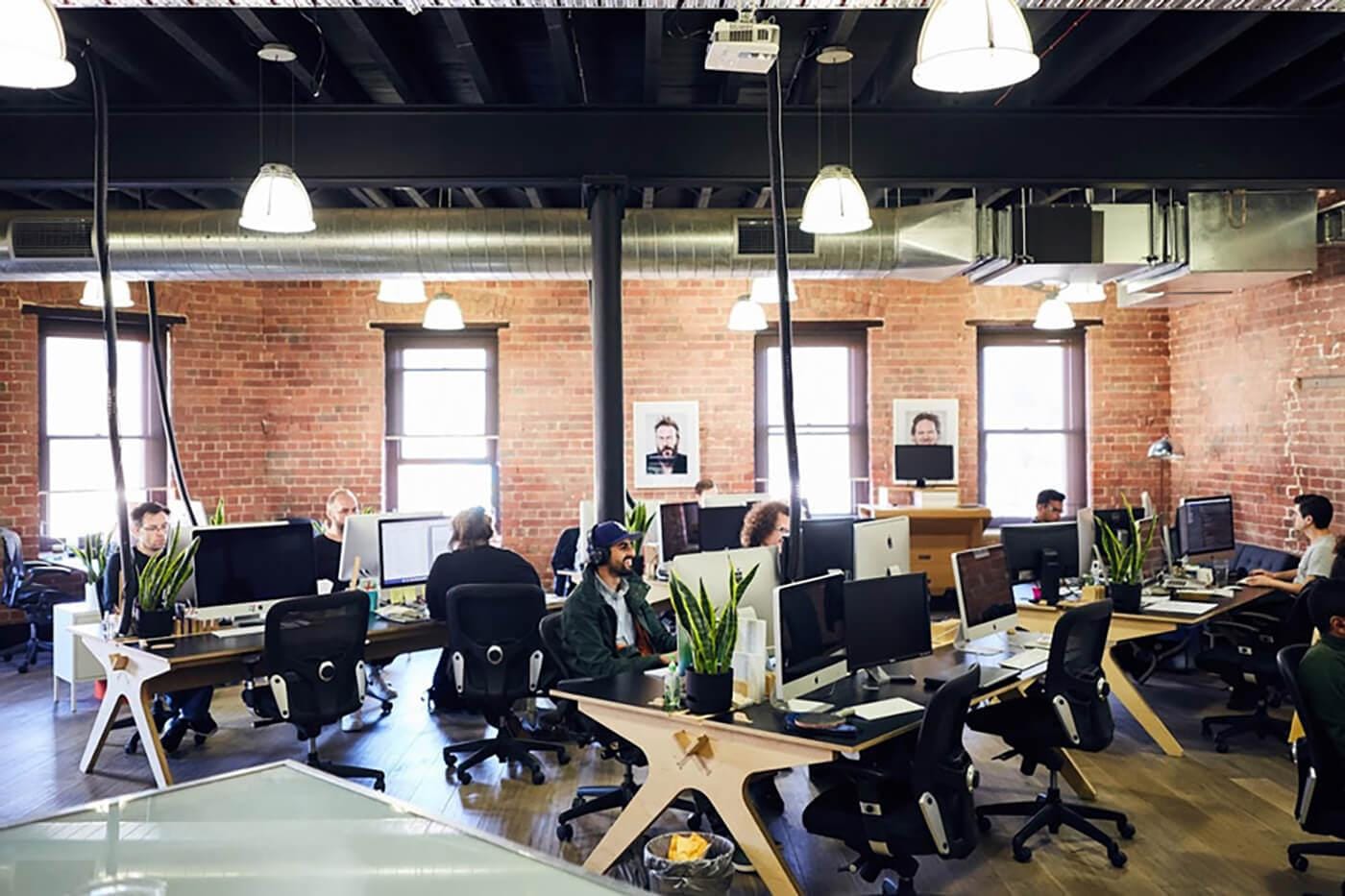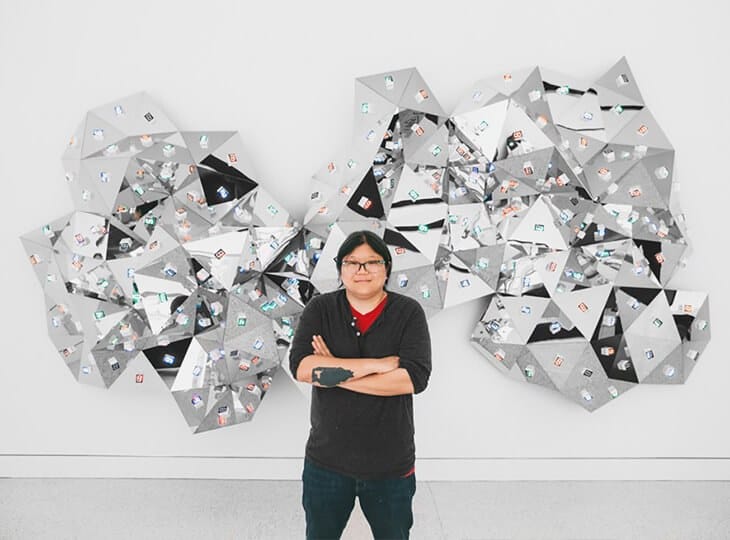A lot of people talk about changing the world with design. James Noble actually does it.

Noble (shown above) is an Englishman who moved to Australia and co-founded the agency Carter with Paul Beardsell. From smaller internal actions, such as banning disposable coffee cups from the office, to the agency’s extensive work with not-for-profits, the team at Carter has demonstrated its commitment to environmental and social change.
It started in 2004 when Noble went to Nepal to help orphans and Tibetan refugees and realized that without medical or construction expertise, his in-person impact was limited. He returned and set up Melbourne-based Carter to capitalize on the expertise he did have: web design. Today, Carter helps its clients meet their goals, multiplying the positive impact of Noble’s skill set many times over. Carter is now one of the largest independent digital design studios in Australia.
With a large percentage of the client roster in the not-for-profit world (including World Vision, The Australian Heart Foundation, Black Dog, Trust For Nature, and Cancer Australia), the agency’s work goes well beyond website creation and fundraising campaigns. Underpinned by the belief that every dollar donated should be put to the best use possible, not a nonprofit’s overhead, Carter develops new services to help clients with business analysis, user experience, technical advice, wayfinding, service design, customer experience, and empathy mapping.
In the following interview, Noble shares his philosophy, practical ways to make a difference, and how the agency’s culture of caring generates success for the agency and its clients.
Create: What other jobs did you have before starting Carter Digital, and how do they affect your outlook today?
James Noble: I was eager to start work when I was young and lied about my age. I’ve worked as a baker, a butcher, a laborer, and I’ve climbed high-rise buildings during construction. I knew at an early age that I didn’t know what I wanted to do, so I wanted to try a bit of everything. I’m from the council estates of Manchester, England, which aren’t the nicest places in the world, so it was a bit of a challenge. But that shaped me to know what hard work is.
Create: What does a normal day look like for you now?
Noble: A lot of meetings and talking to the team, doing some motivational elements here and there. Taking the time to understand user and client needs. We try to solve problems as we go along and do discovery in the initial meetings before we even start a project. With each client, we go through the process of trying to understand their offering and making sure we are a good fit and that the project is valid. We essentially spend a lot of time validating people’s businesses and ideas. We don't take on an idea from someone if we believe it isn’t going to be successful. We are pretty ethical about that—always looking at the metrics for success and making sure their new ideas haven’t already been done and will be valuable to their audience.
James Noble will be speaking at the Adobe MAKE IT conference, live in Sydney and online. Register now to hear him speak—it's free!
Create: How do you share your mission to create positive social and environmental change with your clients and employees?
Noble: We used to send clients wine and cards at the end of the year, and we felt it was a bit cold. Now we donate that money to charity and let clients know exactly where it went.
We’re always looking at ways to reduce our footprint and have less impact on our environment. The environmental thing happened organically from the start; it stands for what Carter is and helps us attract the right people. When we interview potential employees, we make sure that the person’s values fit our values.
We have a Geek-of-the-Week where our staff vote on the employee of the week, and then a Geek-of-the-Year. Everyone puts in money, which Carter matches, and the winner gets to pick a charity to donate to. This idea came from the team.

Your design ethic will affect how society is driven through design. We wanted to put our money where our mouth is and actually do something ourselves. We can’t just help other organizations—we had to do something with our own money, as well.
When we work with not-for-profit organizations, we focus squarely on the positive impact of the work rather than profit. To do this, we offer discounted rates to cover costs, and we attract people already onboard with the idea of facilitating change for good. We collaborate with people transforming social, arts and culture, environmental, health, and educational communities by donating our time and skills. We might deliver a new engagement strategy or build a digital platform to, say, help patients get easier access to information.
Create: Why do you go to the trouble of running a design studio if not for profit?
Noble: It's more based around not aiming solely for profit, but working with people making a difference (no matter how small). We are here for a short time and if you can leave a positive footprint, then you should. The world is bigger than just you. Design is bigger than you. I am not a doctor or a teacher, but I do have a digital mindset and a creative way of thinking where I see opportunities when other people see problems.
If I can help bring more people to the same place to make an impact, it’s bigger than just me doing it. I think the world is a bit messed up and I want to make it a little better. The studio is full of people who want to help. It’s why they’re there. Knowing why you are doing something gives you more motivation to do it well.
Create: When you start a new project with a client, how do you make sure it will be successful?
Noble: Nearly every project goes through design thinking models to understand the client, their audience, the needs and wants, and the user pathways. We always collect qualitative and quantitative data. We never base anything on gut feel or opinion. Everything is driven by information.
We try to work physically before we move to digital, and we’re now switching to design sprints so we can be sure we are set before we get to development. We do some prototyping first to make quick, agile changes.
Corporations are getting in line with David Ogilvy's thinking of “what,” “when,” “why,” “how.” Everything comes down to that, even why you do your job and who you do it for. Everything breaks down into those things. People are getting more dependent on things that can go wrong, and it’s our job to make sure they go wrong less frequently. When we onboard, we are always asking the question, “Why?” Why did you make that decision? What was the driving force behind it? Then you can work out whether it is right. We can lose clients by being honest with them and saying we won’t do an app if we think they don’t need one. But more often in that instance, the clients will ask us what they do need.
Create: Carter has been evolving many new services. What drove the change to go beyond the standard digital agency offerings?
Noble: Digital can mean anything and is becoming more assimilated into everyday life. We offer the customer experience and products. For example, rather than just being a consumer-driven website that allows purchases, could it be used in-store? How do you make things more efficient and create a smaller footprint? Why do hospitals have data filling up filing cabinets rather than in digital format, which would allow doctors to access information outside of the hospital?
We want to affect the cognitive thinking of a person, rather than just the actions they take. It’s part of the “design is bigger than you” thinking. How do you influence people not to just make one decision, but more decisions that are similar, and be more aware of what is going on around them as a community, a state, or a nation? If you give an overview and help them understand more about things, they question the purchase in the first place and you influence them before they even make a purchase. We wanted to be sure we weren’t missing an opportunity to influence people for good.
Create: How does the agency accommodate a wide variety of projects?
Noble: We have a core team and work out how many per team is required on a particular project. Each person has a different skill set; we match them to the project and roll through project plans to make sure we can connect all the dots. We are agile and make sure we are filling all the seats for the project. We don’t have a set methodology other than being sure to cover humanity, creativity, and purpose. We are constantly adjusting the project. If you’re going to be agile, you have to be agile internally as well as externally. Every project is different—you can’t have a fixed approach and be efficient.
We use creative thinking and the waterfall approach and have an open-door policy—everyone has a voice in the studio. We have pre-flight testing of every project, and then everyone is aware of projects they aren’t working on so they can give honest, outsider feedback. Post-it Notes, sketchpads, and pencils are important tools because you aren’t impeded by technology. In fact, everyone in the studio gets a notebook, Post-it Notes, a pencil, a KeepCup, and our message of “Humanity, Creativity, Purpose” when they start.

Create: What are some of the hardest-learned lessons from your years running an agency?
Noble: Needing a holiday and not having time for it! You can’t afford burnout. You also have to make sure your staff have projects that they can relate to and love and respect. If you try to fit things in because of money, it doesn’t work. And always be available for clients. At one point we had nearly 400 clients and 14 staff, so a lot of things can go wrong if you aren’t keeping an open dialog with your clients. Be open and honest all the time, it’s the only way.
A difficult thing for any agency is maintaining culture and ideals. It’s all about making sure you have the right people in the right seats. The right people in the wrong seats doesn’t work. Determining where people should be and tapping into their core skillets is a hard ask, but you have to do it right.
You don’t want anything to become stagnant and you can’t ever take your eye off the ball. Always think “What’s next?” If you don’t change things up, it gets stale. We believe a change is as good as a holiday, so we move the office around every year. You have to adjust the environment to keep it interesting and inspiring.

Create: After years of trying to effect positive change in the world, are you more or less optimistic?
Noble: I’m more optimistic. We may be too late, but I think people are waking up to the fact we need to do things differently. Technology used to be intended to facilitate a conversation, but now it is the conversation. People have gone from using technology to enhance their lives to it being their lives, and they are slowly waking up to that and going back again. You see people growing their own foods again and crafting things.
Humans need attention and you don’t get it online. I am optimistic because I think people are beginning to realize that sitting across the dinner table from someone who is being social on their phone is not actually being social. People are starting to make a shift back to realizing that technology has had its hoorah and is going back to being a facilitator again.
Working for all these not-for-profits, you become aware of things you weren’t aware of before, and it starts to open up your mind about the rest of the world. The bigger picture is that more and more people are waking up to that, as data and information become more available. You can start making your own judgment calls and work out whether something is “fake news.” People are starting to do that with all the problems in our world, from climate change and homelessness to landfill issues and mental health. I’m more optimistic not just because of the positive impact of the projects we’ve worked on, but because we are seeing actual footage of things that are happening. As a result, people are starting to be more conscious of what they are buying and why they are buying it.
My life mission has been encapsulated into Carter to some degree. I need to figure out how to get past my own limitations and work out how to get to the bigger picture and influence companies like Nike to make recycled plastic shoes and prove their purchase path and distribution to reduce the carbon emissions around the world. How do I get Amazon to use a smaller box and have a smaller carbon footprint? How do I get face time with the people who are important and can make a difference? That’s the next challenge!

